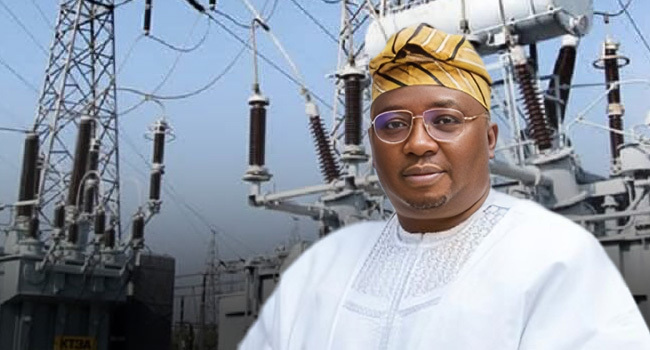The Minister for Power, Chief Adebayo Adelabu has ordered the Transition Company of Nigeria (TCN) and all other relevant agencies of the ministry to begin the immediate implementation of the recommendations of the inter-agency committee, set up to address the incessant grid collapses in the power sector.
This is as the TCN appealed for understanding among Nigerians on the possibilities of intermittent disruptions as repair work begins on the grid.
The Minister’s matching order came as the transmission company reported that the national grid experienced a disturbance at approximately 11:29 am, on Thursday, November 7, 2024, which was caused by a sudden rise in frequency from 50.33Hz to 51.44Hz.
The Special Adviser to the Minister on Strategic Communications and Media, Hon. Bolaji Tunji quoted the Minister as saying that all relevant agencies in the ministry must brace up for the immediate implementation of the recommendations of the committee, which was submitted on Wednesday, November 6, 2024.
“The recommendations of the committee are far-reaching and will proffer lasting solutions to the incessant power grid collapses that we have embarrassingly witnessed in the country in the immediate and long term”, Bolaji said.
Meanwhile, the TCN has assured consumers that efforts were being intensified to ensure uninterrupted power supply to them.
A statement by Ndidi Mbah, General Manager, Public Affairs of TCN on Thursday said the agency was working to ensure the full and immediate implementation of the recommendations of the committee, to safe Nigeria from the incessant grid collapses.
“The Transmission Company of Nigeria (TCN) wishes to inform the public that the national grid experienced a disturbance at approximately 11:29 am this morning, caused by a sudden rise in frequency from 50.33Hz to 51.44Hz. Recovery efforts began immediately, and the Abuja Axis was restored within minutes. Recovery is still ongoing.
“The frequency spike was caused by issues encountered at one of TCN’s substations, which had to be shut down to prevent further complications.
“In addition to this, TCN is actively engaged in significant repair work on several critical transmission lines and substations. This includes the 330kV transmission line along the Shiroro–Mando axis, major upgrades at the Jebba Transmission Substation, and the restoration of the second Ugwuaji–Apir 330kV transmission line.
“Furthermore, following the submission of the investigative report on the causes of previous grid collapses, TCN has begun addressing the identified weaknesses in the transmission system. Efforts are being made to close the gaps highlighted in the report, and to enhance the overall stability and resilience of the grid. These efforts include both technical upgrades and strategic interventions based on the committee’s recommendations”, Mba said, adding that “however, it is important to note that while these repairs and improvements are underway, some degree of instability in the system is likely to persist until all major works are completed. TCN acknowledges the impact of these disruptions and kindly asks for the understanding and patience of the public during this challenging period.
“The company remains committed to improving the reliability of electricity supply, recognising the vital role that stable power plays in Nigeria’s socio-economic development. TCN assures the public that all necessary measures are being taken to ensure the grid’s long-term stability, in line with the recommendations of the investigative committee, while also addressing infrastructure damage such as vandalized transmission lines”.











